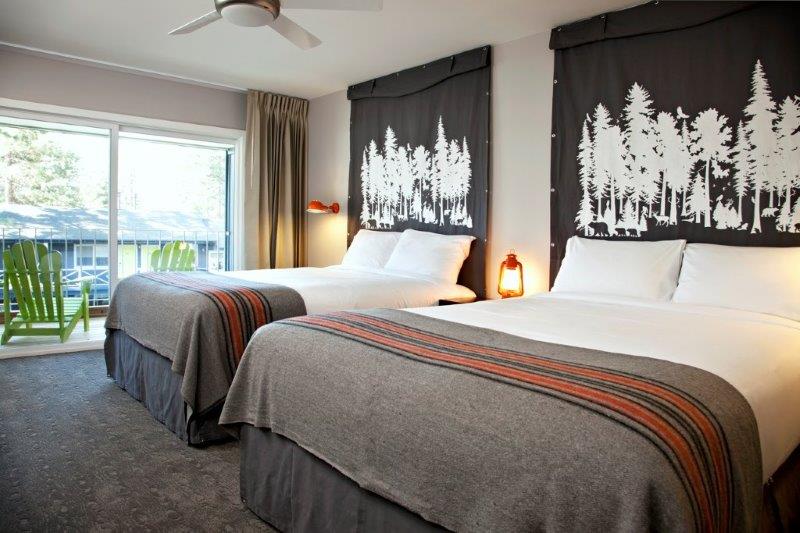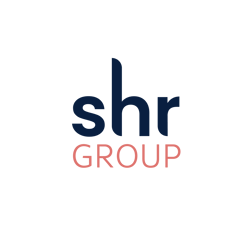
Basecamp Hotels, already one of the coolest up and coming hospitality brands, has found itself perfectly positioned for travel recovery. The South Lake Tahoe-based company has four properties – each converted from “under-appreciated” motels – in beautiful locations ready for socially distanced exploration.
Earlier this year, Basecamp suffered the same demand plummets experienced across the entire industry. They reduced staff, and the team members remaining wear several hats. Several members of leadership have even moved in to a few of the hotels and, during the worst part of the pandemic, the CEO could be found checking guests in at the front desk.
They adapted, and they did it quickly. With new marketing messages, new promotions and a reliance on agile technology, the demand floodgates have opened, and Basecamp’s Tahoe properties are recording year-over-year ADR growth. We recently spoke with Amanda Gardner, director of revenue at Basecamp, to see just exactly how she’s made all the magic happen.
How is Basecamp preparing for recovery post Covid?
Gardner: For the Tahoe market, it's been wild to see the recovery. We had closed a couple locations and we had all kinds of team meetings, exploring what-if scenarios and expecting the worst.
We shifted strategies and began playing up what were previously detractors at our properties: They’re old motels, so you can drive right up to your door. We don't have central AC, so there is no need for guests to worry about breathing recirculated air. Each room is contained, there are no elevators, so no real contact with other guests is required. One of the most unique things we did is implement a reservations system for our fire pits allowing guests to rent a private hour at the fire to yourself.
Then, in June, demand really came raging back in full force. The floodgates opened as people from the Bay Area looked to escape north. Our average ADR has been higher this summer than last summer. People were just desperate to get out, and that’s been fantastic but a little scary as we manage high demand with leaner staff.
In Boulder (Basecamp Boulder Hotel), business was slower to ramp up. That hotel is more reliant on group business, which went away immediately and hasn’t really returned, so we’ve switched strategies there, too, to focus more on leisure business.
How has the Basecamp team changed the way you operate?
Gardner: We definitely had to reduce staffing substantially, but the Basecamp team has always been fairly small. We’re all jacks of all trades and that came in very handy during the pandemic. It’s been really intense for the leadership team and the people we were able to keep. It’s been all hands on deck since we started getting business back in June.
For me, I’ve realized the opportunity to shift some strategies. For example, maybe we were too reliant on third-party business or we were dropping rate too quickly in attempts to fill the hotels. With this huge shock to everyone's systems, it’s been an opportunity to shift some of that thinking.
How has the marketing message changed?
Gardner: Before, we were really focused on brand awareness, and we had a lot of material to work with because we are a very unique brand. Now, we’re being more specific and building creative promotions to capture demand. Some of the big box brands we compete with can’t be as nimble. We have a small team, so we can get on a call and say, ‘This isn't producing,’ and we can move to the next.
We've always tried to offer creative promotions to both reinforce the Basecamp brand and drive direct bookings, but we've had to get even more creative during the pandemic – everything from ‘Start your weekend on Wednesday’ to ‘Free Fridays’ to showcasing local partners with seasonal add-on experiences. We’ve been able to harness those ideas and translate them into our booking engine, which in the past has been a bit complicated.
We’ve reached out to groups, past guests, and we’re doing some prospecting, but we haven't been great at outreach to people outside of our database, which is why we’re looking to implement a CRM.
How are you leaning on technology to assist?
Gardner: Building our tech stack has actually been a surprisingly smooth process, as opposed to other places I’ve worked. We stay pretty streamlined and don't have tons systems. What we do deploy has to integrate seamlessly, has to do a lot, has to be user friendly, and has to be worth it.
As a result of implementing Windsurfer CRS, we've seen a positive trend in direct bookings outnumbering third party reservations at almost all of our locations over the course of the last few years, and that has continued to be true this summer. Even with Covid, direct bookings have been our top source of production all summer long and we plan to continue that trend with a host of new Fall promotions to keep that momentum going.
Also, the customer support side of technology is crucial to me as I work remotely and I’m not in the office with other people to ask for help. At SHR, my CS person has become my good buddy. That’s important to me because I’m trying to build this complicated thing and you can tell she cares about helping. With her, I've been able to learn how to really use the system to its fullest potential to get positive results.
by Jason Freed


